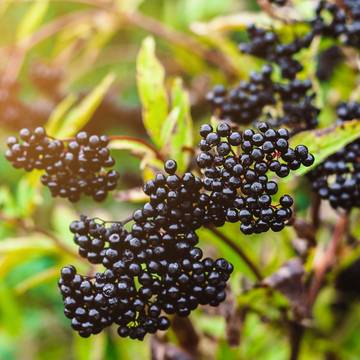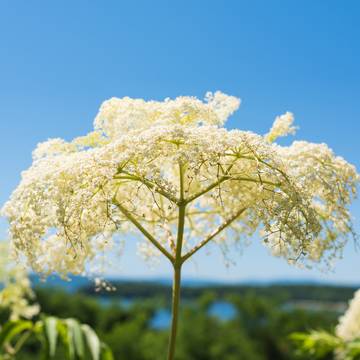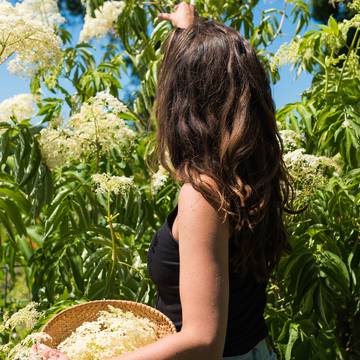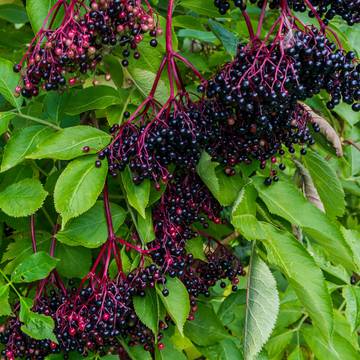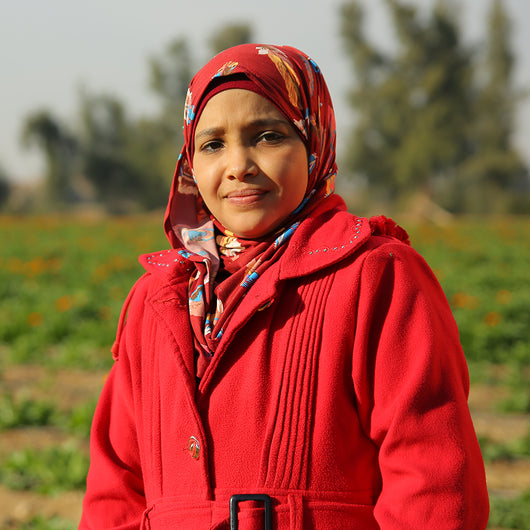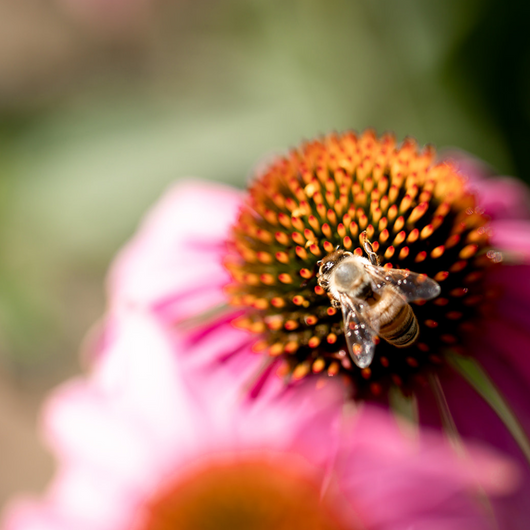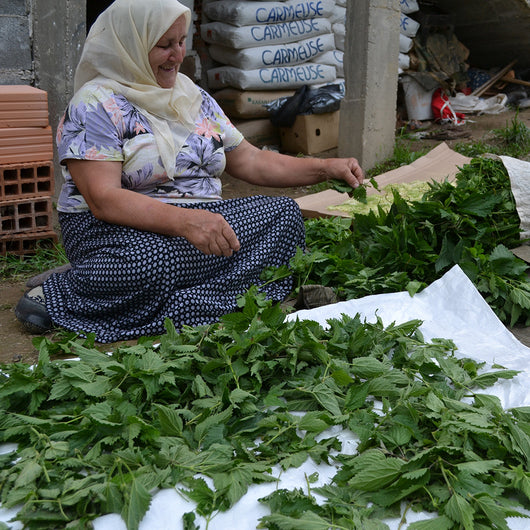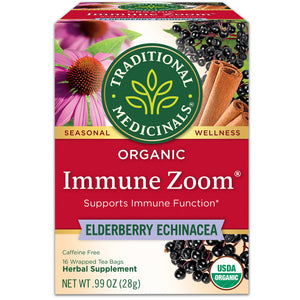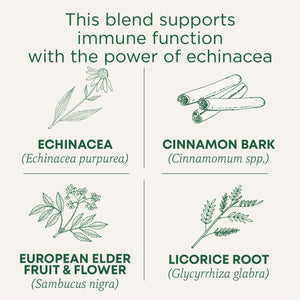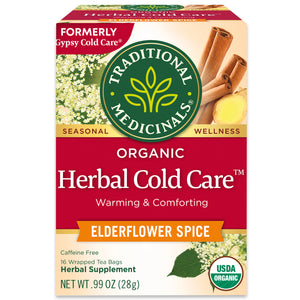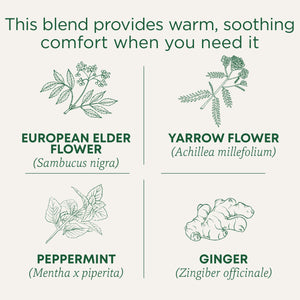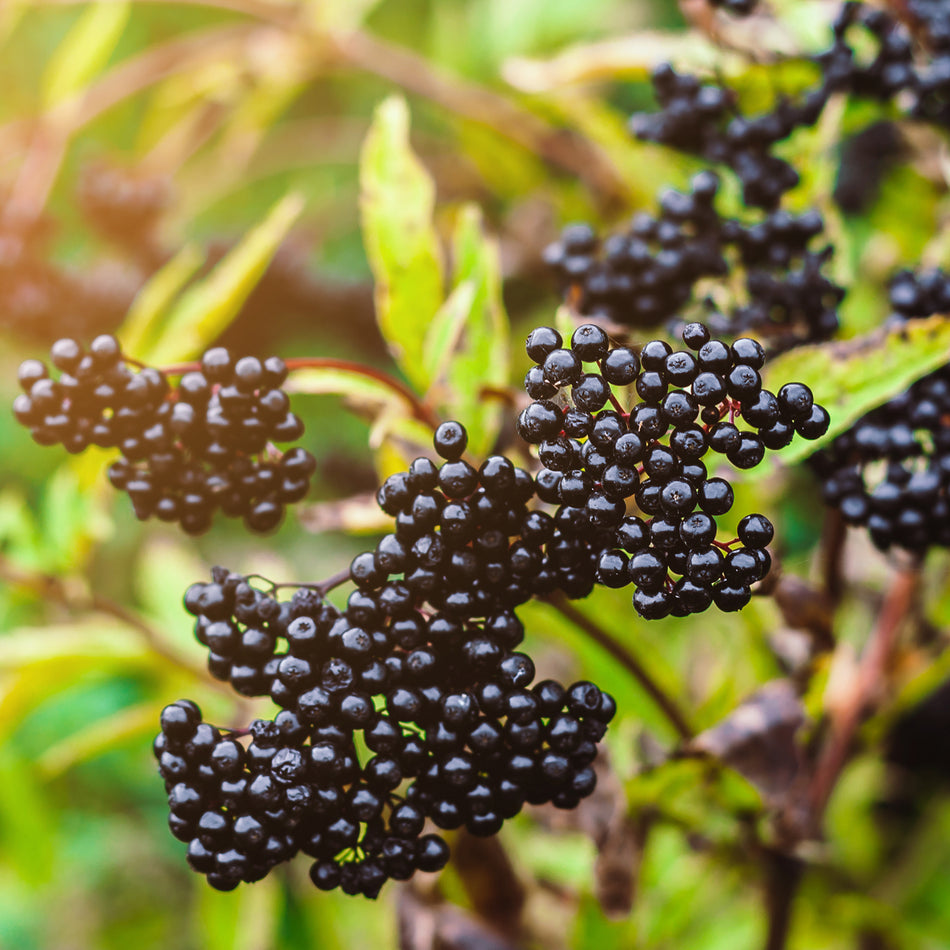
Elder
Sambucus nigra, fructusElder is as prevalent in remedies today as it was in ancient times. Its petite creamy flowers and dark purple berries most notably appear in seasonal formulas supporting immune health.*
“The medicine chest of the country people.”
What are the Benefits of Elder?
Elder is one of the most common plants in herbalism, as both elder flower and its berries have specific health benefits of supporting a healthy immune response.* Elderberry and elderflower are among Europe’s most esteemed remedies for use during colder months, and their popularity has increased over the centuries. On modern store shelves, European elder can be found in an array of immune-support products in the form of teas, extracts, juices, gummies, and syrups.
Known as “the medicine chest of the country people,” elder is a pleasantly-flavored, tried and true herbal remedy that has supported people with seasonal wellness for centuries.* In addition to herbal remedies, elder has also found its way into the kitchen, used for centuries for making preserves, wines, winter cordials and adding flavor and color to other concoctions. In fact, ripe elderberries were once known as “Englishman’s grape” and have been used for centuries to make elderberry wine.
Folklore & Historical Use of Elder
Elder has a long history of traditional use among Native Americans and European herbalists. In Old World tradition, elder served as a great symbol of protection - where people planted it around houses or hung it above windows to keep witches at bay and to watch over plants in the garden.
This herb takes its name from the Anglo-Saxon word æld, meaning “fire,” since blowing through the hollow stems of elder’s young branches helped to fan flames.
Botanical Description & Habitat
There are nine species of temperate and subtropical shrubs and small trees which commonly go by the name elder or elderberry. We use Sambucus nigra, commonly known as European elder, native to Europe, Northern Africa and Western and Central Asia. It’s a deciduous tree that grows 30ft tall with small clusters of white flowers in the early summer that transition into dark, purplish-black berry-like fruit approximately ¼ inch in diameter.
When To Use Elder
Start taking at the first signs of immune support needs.
Have on hand when the seasons turn cold.
The Business of Sustainable Plants
Our business is rooted in plants, and for us, it’s a business imperative that we care for the ecosystems where these plants live and thrive. We believe that everything is interconnected, which means supporting ecosystems and the farmers and collectors who harvest and gather our herbs. Finding opportunities to reduce or eliminate emissions at the source, we support organic and regenerative farming practices as well as voluntary certifications like Organic and FairWild. These ensure the absence of pesticides, herbicides, as well as the ongoing sustainability of wild collection, and the health and livelihoods of the collectors who forage. Josef Brinckmann, Traditional Medicinals’ Research Fellow, Medicinal Plants and Botanical Supply, asserts, “Everyone has a role to play in preserving biological diversity. One way of doing that is by equitably supporting the local people to serve as stewards of the land.”
It Starts with Organic
We choose to source organic because we believe in the positive impacts it has on environmental sustainability, biodiversity, and overall ecosystem health. Organic helps us increase transparency while prioritizing consumer well-being and farmer success, which is key to producing the high-quality herbs we source. In 2021, we procured 2.73 million pounds of certified organic herbs, over 99.7% of our total botanical herbs purchased. Volumes were down slightly from FY20 due to timing of inventories received.
The impact from organic farming creates a vital ecosystem through improved soil health, water quality, pollinator habitats, and biodiversity. Organic farms also have increased carbon sequestration potential through long-term carbon storage in the soil, helping to mitigate climate change.
One of the benefits of organic that we most value is farmer health. We care deeply about the people who produce our herbs, ensuring that they are not exposed to synthetic chemicals found in conventional agriculture.
Fair Trade
We believe that everyone deserves a fair wage for hard work. That’s one of the reasons why we’re committed to fair trade. Traditional Medicinals® is a registered Fair Trade “brand holder”, “licensee” and “manufacturer,” and our products are certified by Fair Trade USA, an independent third-party certifier. We were an early adopter of Fair Trade, having launched our first fair trade tea product in 1998, just one year after Fairtrade International (FLO) was established. We continue to work closely with our network of producers to help them to implement fair trade standards and get certified.
Immune Zoom® Elderberry Echinacea Tea
Additional Information
Important Precautions:
As with all new ingredients, consult your healthcare practitioner prior to use if you are pregnant or breastfeeding. Not for children under 12.
Legal Disclaimer:
The information and other content in this article are designed to provide a general overview of the botany, cultural history, and traditional uses of this herb. It is not intended and should not be construed as health advice. Every person is unique and you should consult with your health care provider before using any herbal product or supplement.

